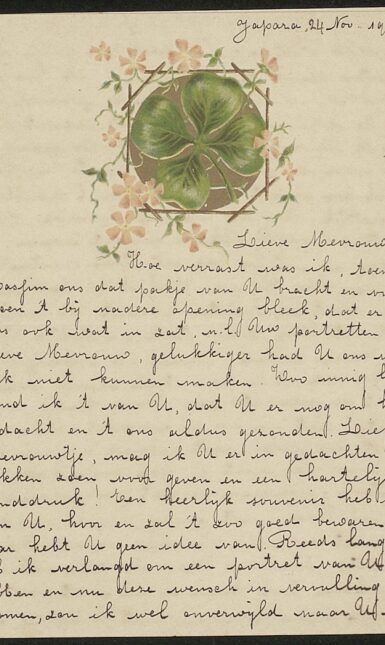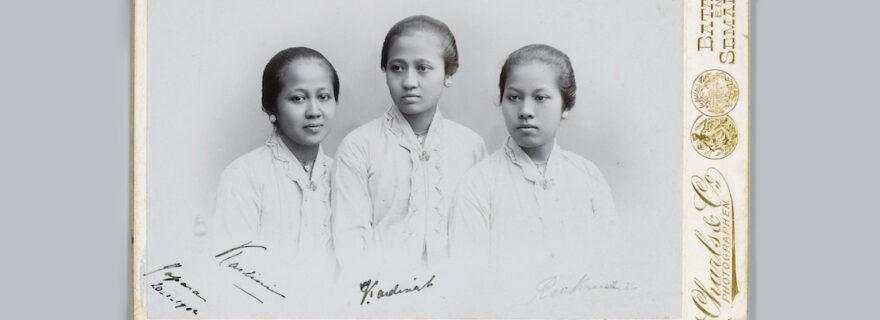Raden Ajeng Kartini (1879-1904). Pioneer for women’s rights in the Dutch East Indies/Indonesia
After her untimely death, now more than a century ago, Kartini's testament in the form of her correspondence reminds us of her enduring legacy.
In November 1902, young Javanese noblewoman Raden Ajeng Kartini (24) agreed to marry the much older regent Raden Adipati Ario Djojoadiningrat, becoming his fourth wife and stepmother to seven children. She fulfilled her father’s wish, a wish that he had made after having fallen seriously ill. He would recover and outlive his daughter for many years. Had he known that this forced-upon marriage would lead to his daughter’s death, he would certainly have granted her wish: to grow old unmarried (as a spinster), reading books, writing articles, educating girls, and fighting for the poor and exploited and against polygamy, colonialism, and capitalism. Instead, Kartini got married, became pregnant almost instantly, and died four days after giving birth to her son, Mas Sienggih. She had never aspired to married life or to have children; she wanted to change the world. And she did, at least in that large region now known as Indonesia, where she built a school for indigenous girls and spread enlightenment among those who stood open for it. To this day, Kartini is celebrated as a national hero and a pioneer for women’s rights in the Dutch East Indies/Indonesia.
Kartini was born as a daughter of the Regent of Jepara, Raden Mas Sosroningrat. He was a liberal man. He allowed his daughters to learn how to read and write – which was highly unusual for girls at the time. When she grew older, he did not object to his daughter’s debating politics either and even tolerated her outspoken articles, published in various Dutch language periodicals in Java under her pseudonym Het Klaverblad (cloverleaf). His liberal attitude, however, did not keep him from having two wives and from forcing Kartini into the traditional premarital isolation (pinggitan) after having started to menstruate. It was her Dutch private tutor who eventually convinced her father to discontinue the pinggitan.
Kartini’s mother was Raden Mas Sosroningrat’s second wife, and hence she was not allowed to raise her children, or even stay close to them. Kartini grew up with at least twelve siblings, of whom Kartinah, Soelastri, and Roekmini became her favourite sisters. After she had left home it was with them that she kept up a vivid communication by mail. Roekmini became her closest confidant, and it was also Roekmini who continued, together with her sister Kartinah, the fight for women’s rights after Kartini’s death.
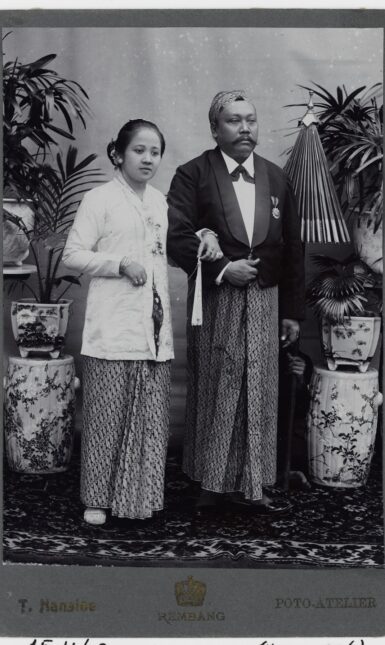

It is thanks to J.H. Abendanon, the director of the Department for Education & Religious affairs at the time, that we know so much about Kartini’s inner life, her thoughts and feelings. After having arrived in Java, he and his wife Rosa had heard about the sisters and decided to visit them. A longstanding and intensive correspondence developed from that visit, and Rosa Abendanon, 22 years Kartini’s senior, became her closest pen friend. Some of Kartini’s letters for Rosa are 18 pages long. In 1911, seven years after Kartinis untimely death, J.H. Abendanon decided to publish a selection of Kartini’s letters under the title “Door duisternis tot licht” – Through Darkness into Light. The book sold well, and Abendanon invested that money in a foundation that continued Kartini’s work by building more schools for indigenous girls – the Kartini schools.
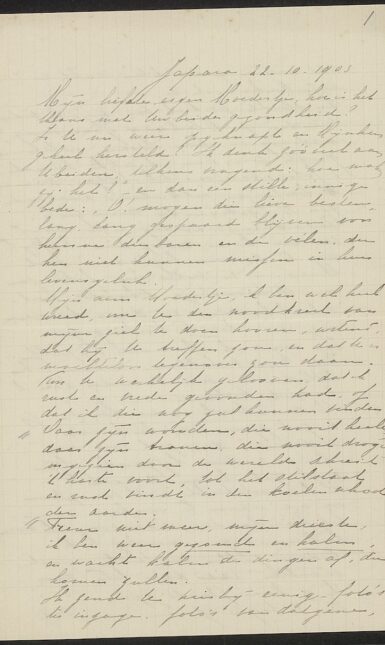

Apart from Kartini’s letters, the archive Jacques Henry Abendanon also contains letters written by her sisters Roekmini, Kardinah, Kartinah, and Soemantri between August 1900 and January 1936, most of them also addressed to the Abendanons. All together the archive holds 361 items, of which c. 110 letters were written by Kartini herself and another 110 by her sisters. Most of the letters are addressed to Rosa Abendanon. After Kartini’s death, various people wrote to J.H. Abendanon, among others, Sultan Mangkunegara. Those letters are also included in the collection. A smaller part of the collection consists of publications and items related to publications and the translation of the letters.
The collection was donated to the KITLV in 1986 by J.H. Abendanon, grandson of Rosa’s husband of the same name. A year later, F.G.P. Jaquet, the KITLV-librarian who had received the letters on behalf of the KITLV, published a selection. In 2014, Joost Coté published an online English translation of all Kartini letters.
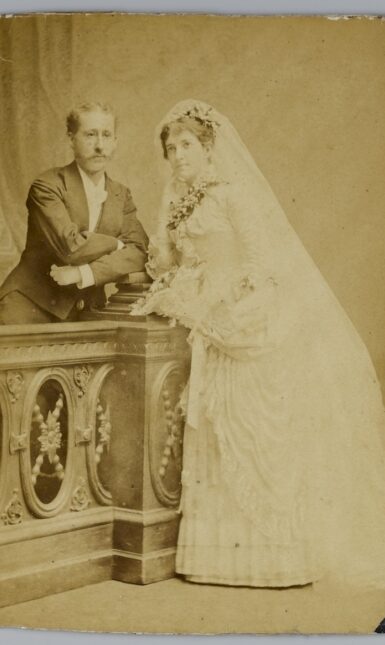

By way of various donations, supplementing archive material documenting the work of the Kartini-foundation and Kartini-schools was compiled (H 897- ubl 324; Or. 26.999-34).
